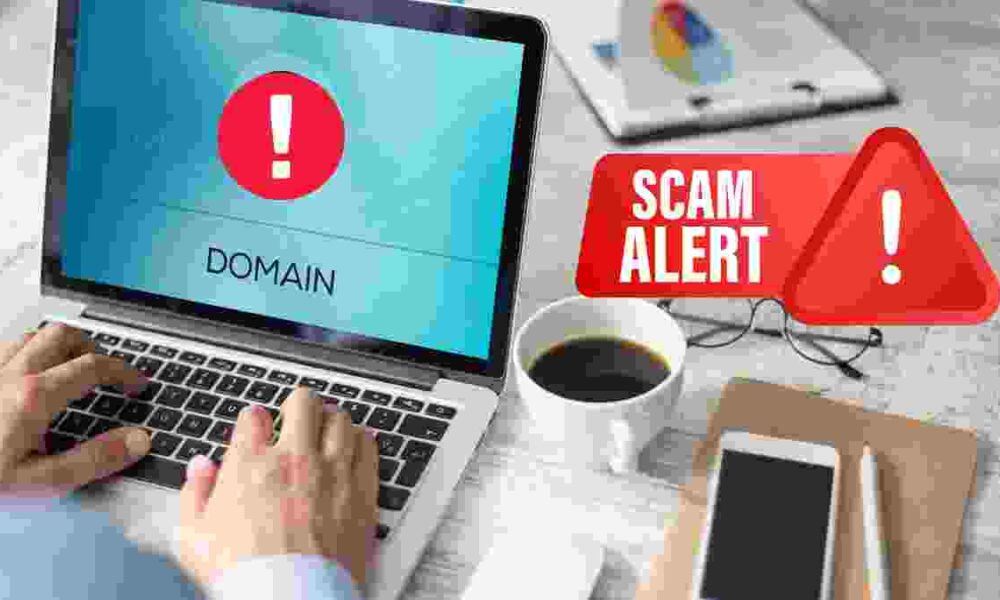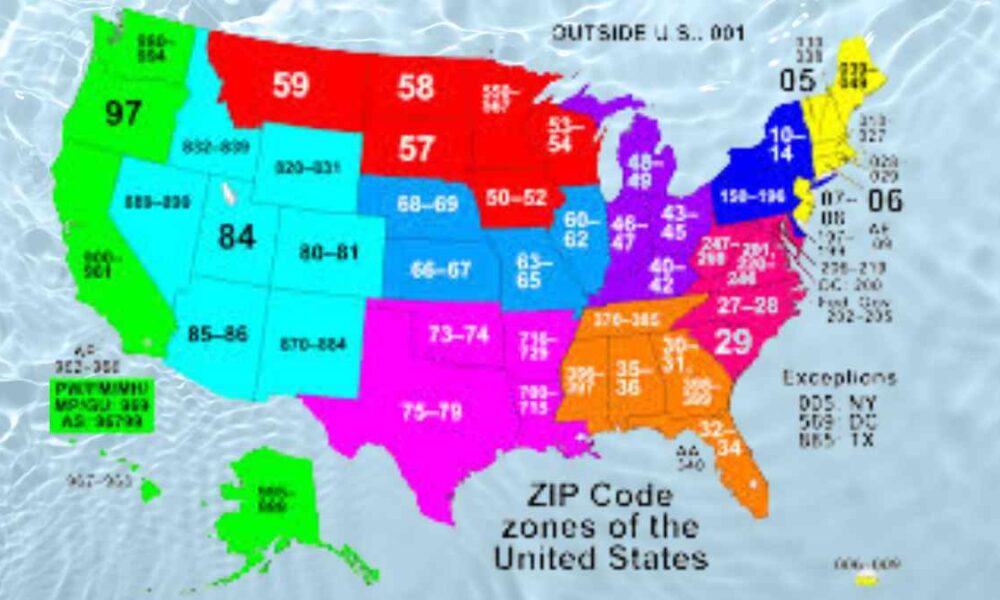
Are you familiar with the infamous Domain Networks Bill Scam? If not, buckle up and get ready to uncover the dark side of online fraud. In today’s digital era, scammers are constantly finding new ways to deceive innocent individuals and make a quick buck. The domain networks bill scam is just one example of their cunning tactics. So, join us as we dive deep into this deceitful scheme, learn how it works, discover red flags to watch out for, and most importantly, find out how you can protect yourself from falling victim. Get ready to become an expert in spotting and avoiding the domain networks bill scam!
How the Scam Works
The Domain Networks Bill Scam operates by targeting unsuspecting individuals and businesses with a clever deception. It starts with an official-looking email or letter that claims to be from a domain registrar or internet service provider. The scammers use sophisticated techniques to make their communication appear legitimate, often using company logos and professional language.
Once you receive this correspondence, it typically contains alarming information about your domain registration status or an upcoming bill payment that needs immediate attention. They create a sense of urgency and fear in order to convince you to take action without thinking twice.
In many cases, the scammer will provide instructions on how to make the payment or update your billing information. They may request sensitive details such as credit card numbers, passwords, or other personal information. These requests should raise red flags immediately since reputable companies would never ask for such details via email.
If you fall into their trap and provide them with your personal information or make a payment as instructed, they now have access to your financial resources and potentially even more sensitive data. This can lead to identity theft, unauthorized charges on your credit cards, and countless headaches trying to recover from the scam.
It’s important always to remember that legitimate companies will never contact you suddenly through email requesting immediate payments or personal information without prior notice. If you ever receive such communication claiming urgency regarding your domain registration or billing matters, proceed with caution and verify its legitimacy before taking any action.
Red Flags to Look Out For
When it comes to the Domain Networks Bill scam, there are several red flags that can help you identify and avoid falling victim. By being aware of these warning signs, you can protect yourself from becoming a target.
One major red flag is receiving an unexpected email or letter claiming that your domain registration is about to expire. Scammers use this tactic to create a sense of urgency and pressure you into taking immediate action.
Another red flag is if the communication asks for payment through unconventional methods such as wire transfer or gift cards. Legitimate organizations typically offer more secure and traditional payment options like credit card or PayPal.
Additionally, be cautious if the message contains spelling or grammatical errors, as this could indicate that it was not sent by a reputable company. Poorly written content may also contain vague language or confusing instructions which should raise suspicion.
Furthermore, be wary of any requests for personal information such as usernames, passwords, or financial details. Legitimate companies will never ask for sensitive information via email or over the phone.
Trust your instincts. If something feels off about the communication you receive regarding your domain registration, take the time to investigate further before providing any information or making any payments.
By staying vigilant and recognizing these red flags early on, you can protect yourself from falling victim to scams like the Domain Networks Bill scheme. Remember to always verify information independently and report suspicious activity promptly
Tips for Avoiding the Scam
- Educate Yourself: Stay informed about common internet scams, including the Domain Networks Bill scam. Research and read up on different types of scams so that you can recognize the warning signs.
- Verify Before You Pay: Always verify any bills or invoices before making a payment. Contact your service provider directly using their official contact information to confirm the legitimacy of any charges.
- Be Skeptical of Unsolicited Emails or Calls: If you receive an unexpected email or phone call requesting payment, be cautious. Scammers often use these methods to trick unsuspecting victims into sending money.
- Check Website Security: Before entering personal information or making online payments, ensure that the website is secure. Look for “https” in the URL and a padlock icon in the address bar, indicating a secure connection.
- Use Strong Passwords: Protect your online accounts by using strong passwords that are unique and difficult to guess. Enable two-factor authentication whenever possible for an extra layer of security.
Remember, staying vigilant is key when it comes to avoiding scams online! By following these tips and remaining aware of potential red flags, you can protect yourself from falling victim to fraudulent schemes like the Domain Networks Bill scam
What to Do If You Fall Victim to the Scam
If you find yourself falling victim to the Domain Networks Bill scam, it’s important not to panic. While it can be disheartening and frustrating, there are steps you can take to minimize the damage and protect yourself.
Contact your bank or credit card provider immediately. Inform them of the fraudulent charges and provide any relevant documentation or evidence. They may be able to freeze your account or reverse the transactions.
Next, report the scam to your local law enforcement agency as well as any online fraud reporting platforms available in your country. This helps authorities track down the scammers and prevent others from falling into their trap.
It’s also crucial to change all passwords associated with your accounts, especially if you shared personal information with the scammers. This includes email accounts, social media profiles, and online banking portals.
Additionally, consider placing a fraud alert on your credit reports with major credit bureaus such as Experian or Equifax. This adds an extra layer of protection by requiring additional verification before new lines of credit can be opened in your name.
Educate yourself about other common internet scams so that you can better identify red flags in the future. Stay vigilant when sharing personal information online and always verify sources before making any financial transactions.
Remember that falling victim to a scam doesn’t make you foolish; scammers are becoming increasingly sophisticated in their tactics. By taking immediate action and learning from this experience, you can safeguard yourself against future scams while spreading awareness among friends and family.
Other Popular Internet Scams to Watch Out For
In addition to the Domain Networks Bill scam, there are numerous other internet scams that you need to be aware of. These scams often target unsuspecting individuals who may not be well-versed in online security. By staying informed and vigilant, you can protect yourself from falling victim to these fraudulent schemes.
One common internet scam is phishing, where scammers attempt to trick you into providing personal information such as passwords or credit card details by posing as a legitimate entity. They often do this through email or fake websites that closely resemble trusted organizations.
Another prevalent scam is the lottery or sweepstakes fraud, where individuals receive notifications claiming they have won a substantial amount of money. However, before receiving their winnings, victims are required to pay certain fees or provide sensitive information – all of which goes straight into the hands of scammers.
Online shopping scams are also rampant on the internet. Fraudulent sellers may advertise products at incredibly low prices, enticing buyers to make a purchase. However, once payment is made, the buyer never receives the product and has no way of contacting the seller.
Furthermore, romance scams prey on those seeking love and companionship online. Scammers create fake profiles on dating websites and social media platforms in order to develop emotional connections with their victims. Once trust is established, they ask for financial assistance under various pretenses.
Tech support scams involve criminals posing as technical support representatives from reputable companies like Microsoft or Apple. They contact users via phone calls or pop-up messages claiming that their computer has been infected with malware and offer assistance for a fee – ultimately gaining access to sensitive data instead.
It’s crucial always to stay informed about these popular internet scams so you can recognize red flags when encountering them online.
Conclusion
As we reach the end of this blog post, it’s important to reflect on the information we’ve learned about the Domain Networks Bill Scam. By understanding how this scam works and being aware of the red flags to look out for, you can better protect yourself from falling victim to these deceptive tactics.
Remember, scammers are constantly evolving their methods and finding new ways to trick unsuspecting individuals. It’s crucial to stay vigilant and educate yourself about various internet scams that are prevalent today.
If you ever find yourself in a situation where you suspect you may have fallen victim to the Domain Networks Bill Scam or any other scam, don’t panic. Take immediate action by contacting your bank or credit card company to report any unauthorized charges. Additionally, notify local law enforcement agencies so they can investigate and potentially prevent others from experiencing similar fraudulent activities.
Always remember that prevention is key when it comes to avoiding scams online. Stay informed, stay cautious, and never hesitate to seek help if you believe you’ve been targeted by a scammer.
In conclusion (oops!), knowledge is power when it comes to protecting yourself from internet scams like the Domain Networks Bill Scam. By staying alert and following our tips for spotting and avoiding such scams, you’re taking an important step towards safeguarding your personal information and financial security online. Stay safe!
FAQs
Can I trust any domain network bill that I receive?
While there are legitimate domain network bills that may be sent to you, it is always important to exercise caution and verify the authenticity of the document. Look out for red flags such as high fees or unfamiliar companies.
What should I do if I receive a suspicious domain network bill?
If you receive a suspicious domain network bill, do not make any payments without thoroughly researching the company and confirming its legitimacy. Contact your web hosting provider or domain registrar to verify if the bill is genuine.
How can I protect myself from falling victim to scams like these?
To protect yourself from scams like the Domain Networks Bill scam, it’s essential to stay informed and educate yourself about common internet scams. Be cautious when sharing personal information online and always research before making any payments.
Are there any government organizations that can help victims of internet scams?
Yes, many countries have law enforcement agencies dedicated to handling cybercrime cases. If you fall victim to an internet scam, report it immediately to your local police department or contact your country’s cybercrime division for assistance.
Is it possible for scammers involved in these types of scams to be caught and prosecuted?
While catching scammers involved in internet fraud schemes can be challenging due to their ability to operate across borders anonymously, law enforcement agencies around the world work together through international cooperation agreements in an effort to apprehend and prosecute those responsible for such crimes.







